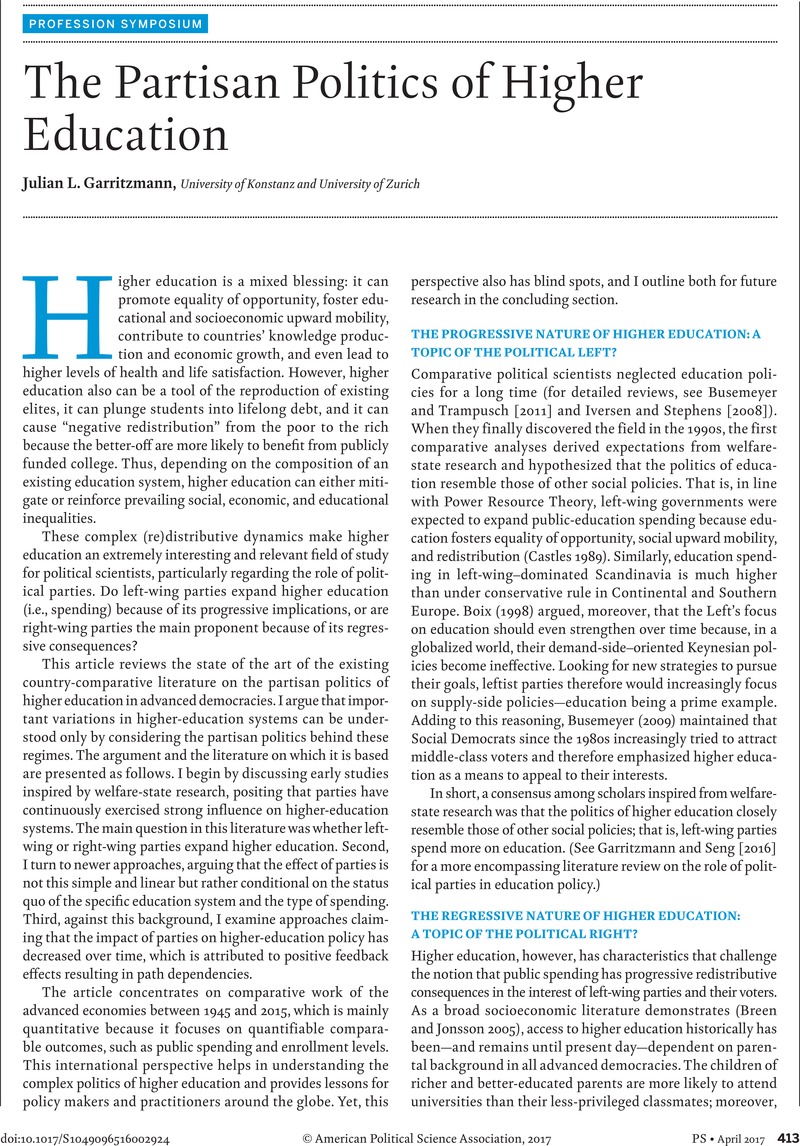Crossref Citations
This article has been cited by the following publications. This list is generated based on data provided by Crossref.
Potrafke, Niklas
2020.
General or central government? Empirical evidence on political cycles in budget composition using new data for OECD countries.
European Journal of Political Economy,
Vol. 63,
Issue. ,
p.
101860.
Czarnecki, Krzysztof
Korpi, Tomas
and
Nelson, Kenneth
2021.
Student support and tuition fee systems in comparative perspective.
Studies in Higher Education,
Vol. 46,
Issue. 11,
p.
2152.
Põder, Kaire
and
Lauri, Triin
2021.
The Paradox of State-Funded Higher Education: Does the Winner Still Take It All?.
Education Sciences,
Vol. 11,
Issue. 12,
p.
812.
Põder, Kaire
and
Lauri, Triin
2022.
The Legitimacy of Private Schooling: Education Preferences in Nine European Contexts.
Journal of School Choice,
Vol. 16,
Issue. 3,
p.
388.
Baldi, Gregory
2022.
Ideas, Institutions, and the Politics of Schools in Postwar Britain and Germany.
p.
45.
Pechmann, Philipp
and
Haase, Sanne
2022.
How Policy Makers Employ the Term Quality in Higher Education Policymaking.
Scandinavian Journal of Educational Research,
Vol. 66,
Issue. 2,
p.
355.
Gomes, Sandra
2024.
Direita e esquerda explicam as escolhas de políticas públicas para a educação superior no Brasil?.
Revista de Sociologia e Política,
Vol. 32,
Issue. ,
Felde, Mareike zum
2024.
Can the party family approach explain Polish partisan positions? A case study on the policy field of higher education in post-socialist Poland.
European Politics and Society,
Vol. 25,
Issue. 4,
p.
720.
Monaghan, David B.
2025.
How powerful are promises? A comprehensive review of the causal mechanisms and outcomes of ‘free college' programs in the United States.
Policy Reviews in Higher Education,
Vol. 9,
Issue. 1,
p.
47.



